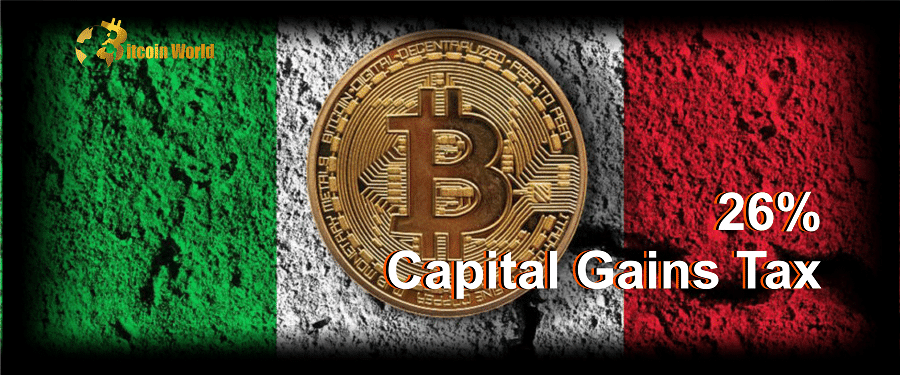By levying a tax on cryptocurrencies, Italy is strengthening its regulatory framework.
According to a story from Bloomberg published on the same day, the Italian government intends to levy a capital gains tax on cryptocurrency income beginning the following year in the budget that was announced on the 1st (local time). The Italian government plans to impose a capital gains tax of 26% on cryptocurrency revenues that exceed 2,000 euros ($2,062) in the following year’s budget. A shift has happened as a result of the idea of cryptocurrencies being redefined. Previously, cryptocurrency was deemed a “foreign currency,” and as a result, the tax rate was very low.
Taxpayers who disclose their cryptocurrency holdings to the Italian government before the first of the next month are eligible for a tax discount of 14%, which is another incentive offered by the Italian government. One possible interpretation of the policy is that it is an effort to persuade inhabitants of Italy to voluntarily register the amount of bitcoin they possess.
According to the statistics website Triple A, there are approximately 1.3 million persons in Italy, which corresponds to approximately 2.3% of the population. The majority of these individuals are between the ages of 23 and 38.
When it comes to policies regarding cryptocurrencies, Italy and Portugal present a picture that is very similar. In October, Portugal, which is known as one of the tax havens for cryptocurrencies, presented a measure that would impose a tax of 28% on gains made from the transfer of cryptocurrencies that were held for less than a year. Portugal has stated that it intends to create a tax policy that is “wide and adequate,” with the goal of establishing criteria for the classification of cryptocurrencies as well as taxation measures.














